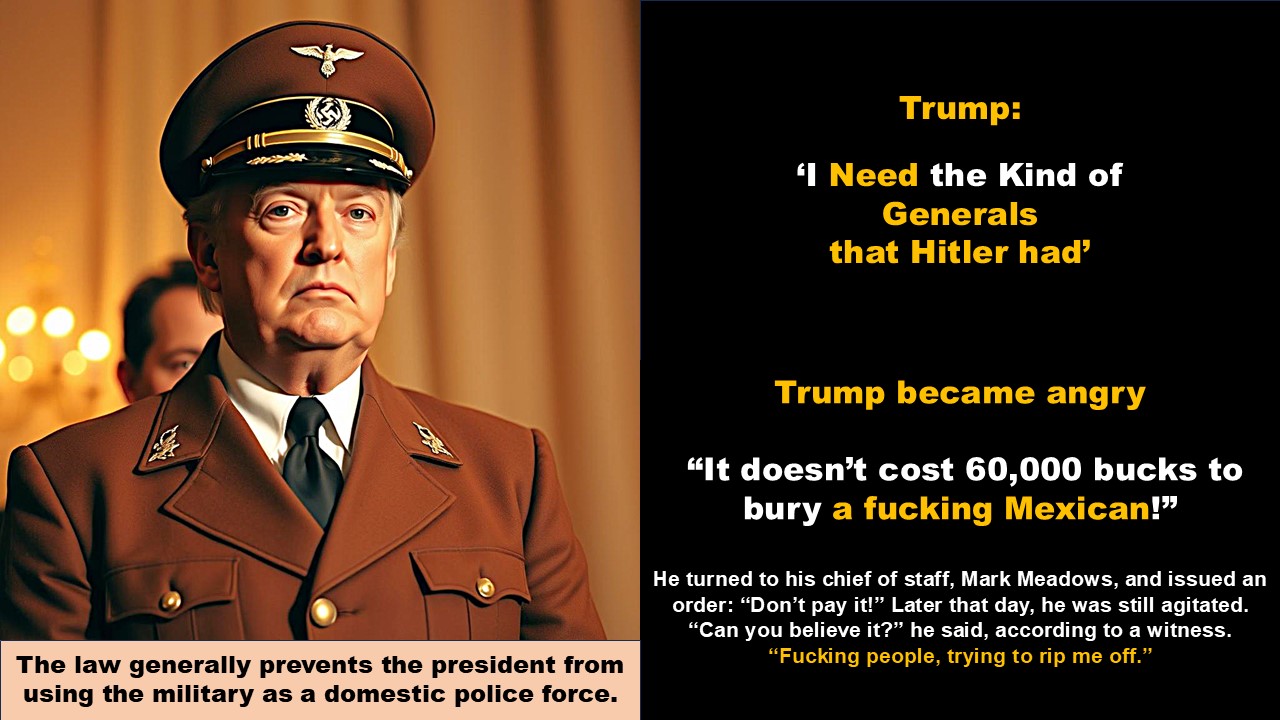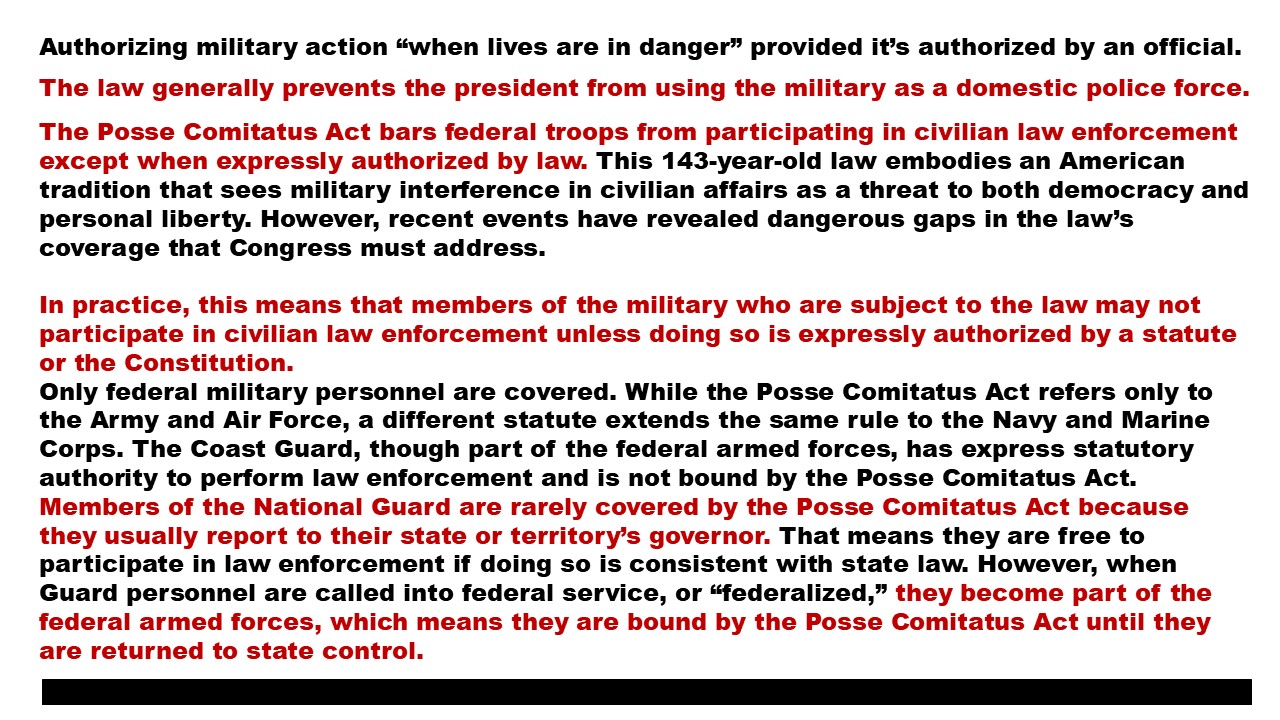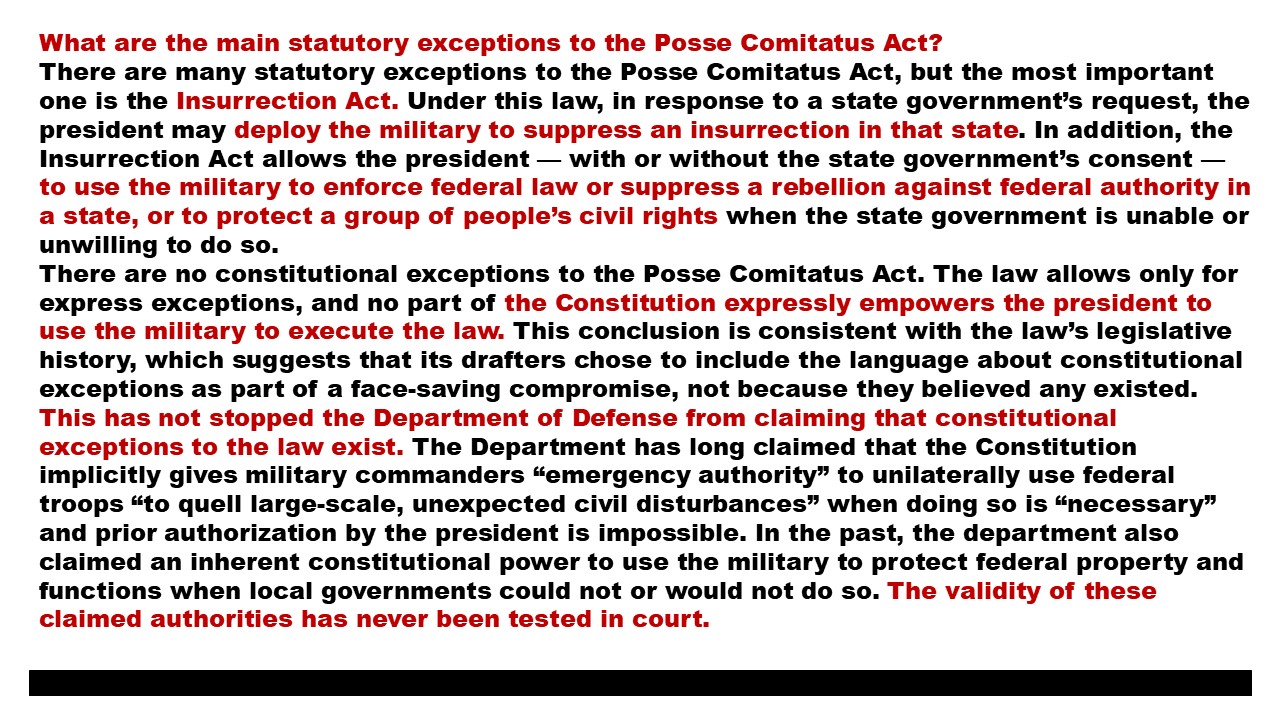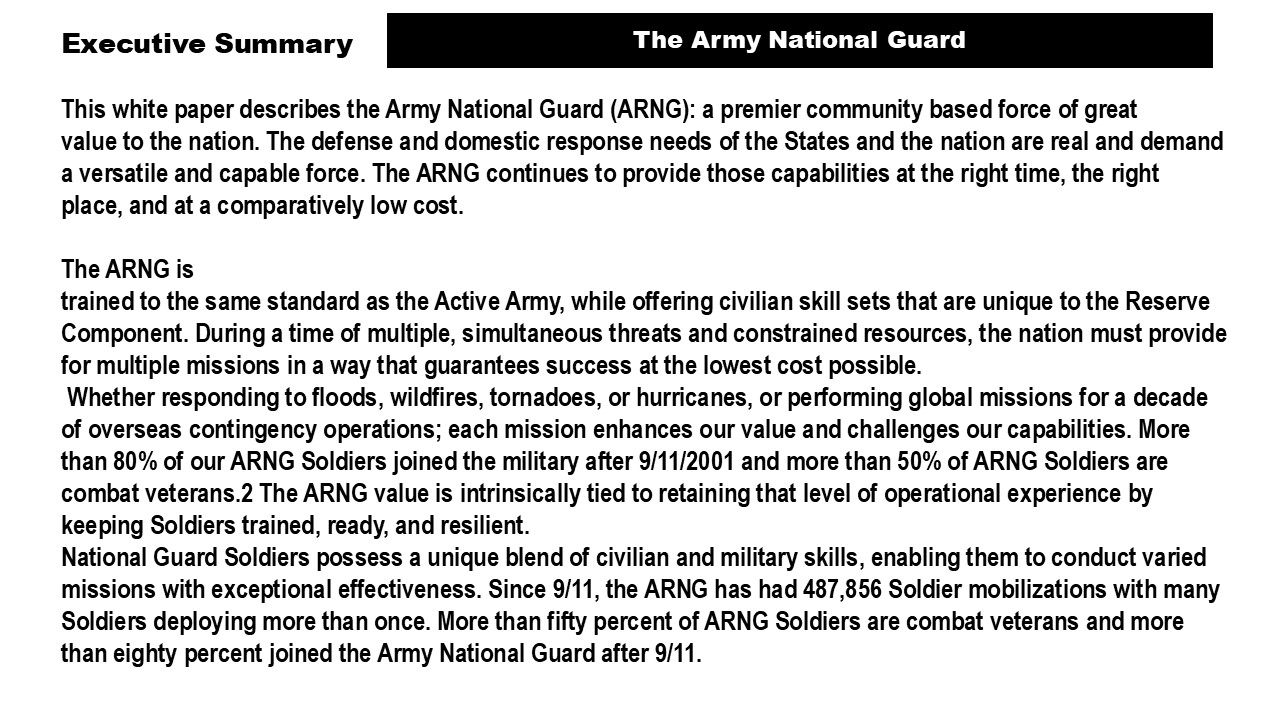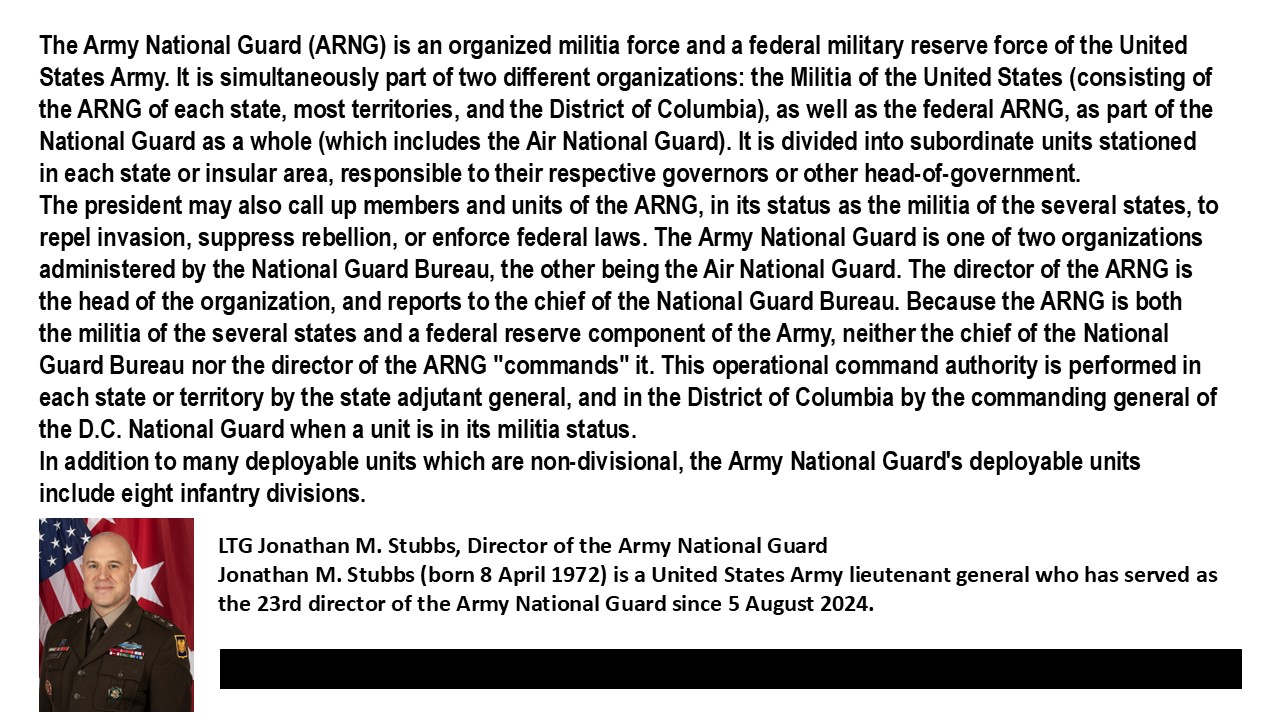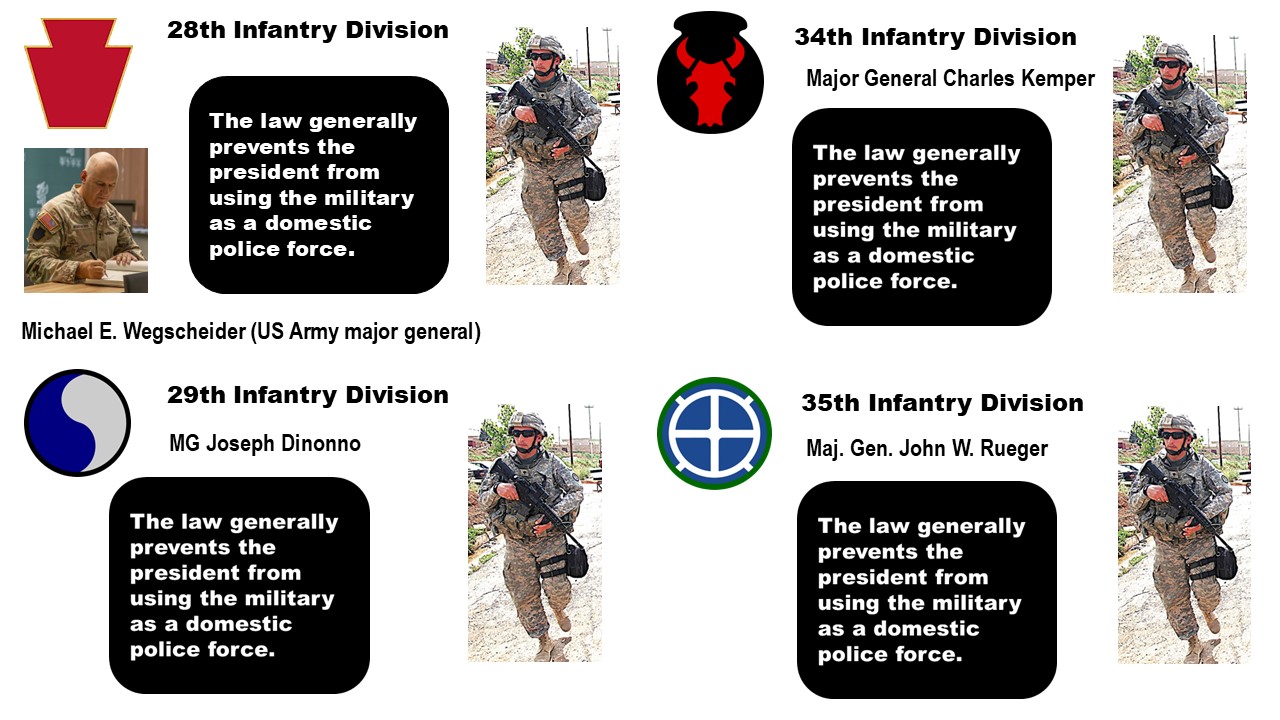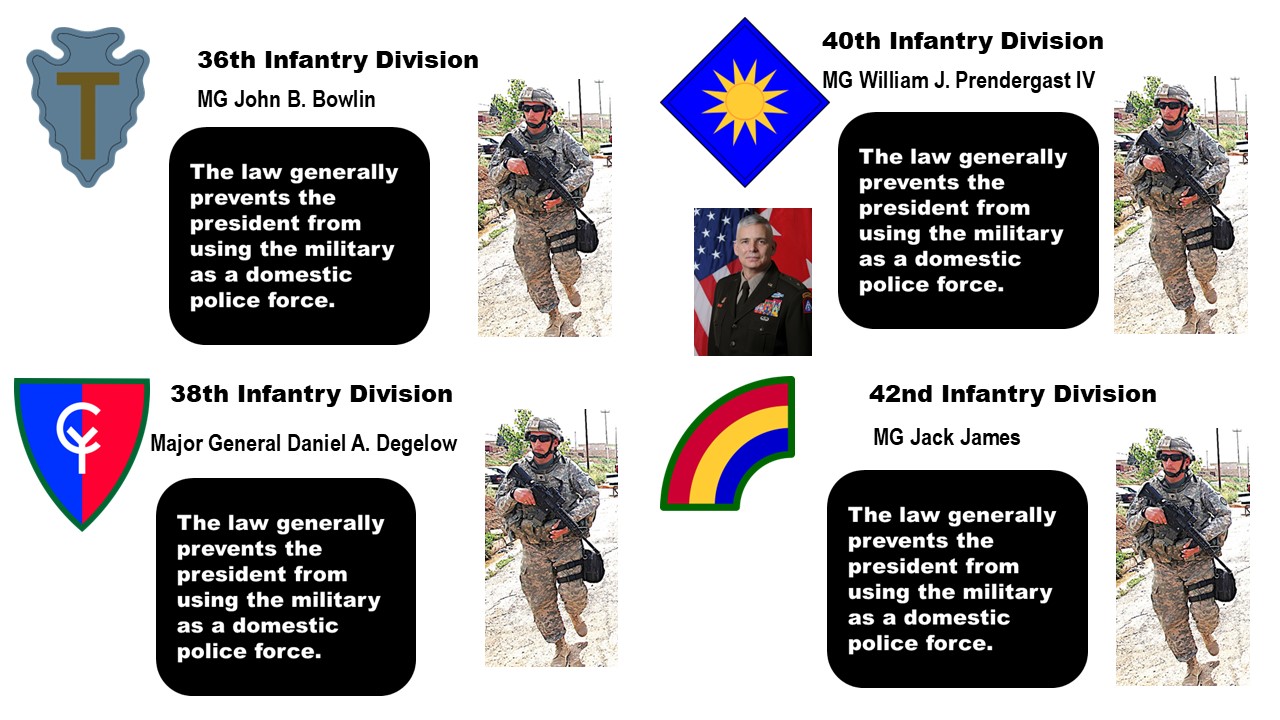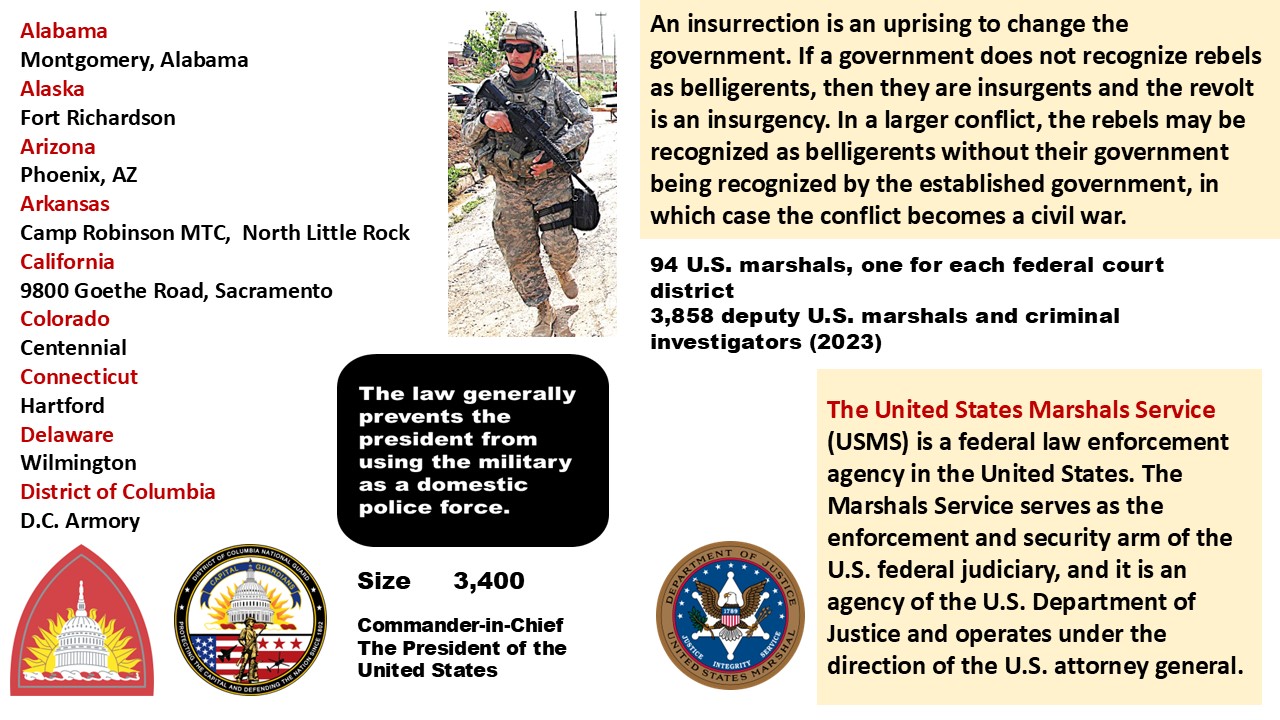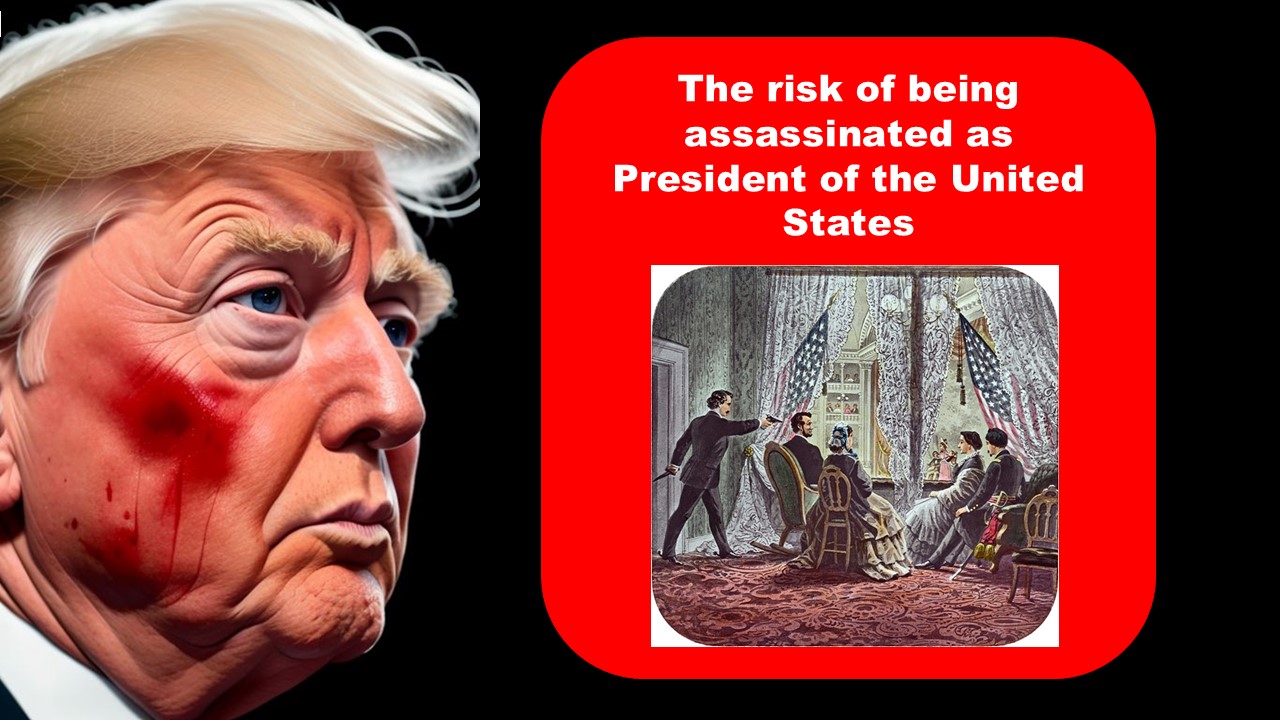Trump like German Generals (English)
The law generally prevents the president from using the military as a domestic police force.
The Posse Comitatus Act bars federal troops from participating in civilian law enforcement except when expressly authorized by law. This 143-year-old law embodies an American tradition that sees military interference in civilian affairs as a threat to both democracy and personal liberty. However, recent events have revealed dangerous gaps in the law’s coverage that Congress must address.
In practice, this means that members of the military who are subject to the law may not participate in civilian law enforcement unless doing so is expressly authorized by a statute or the Constitution.
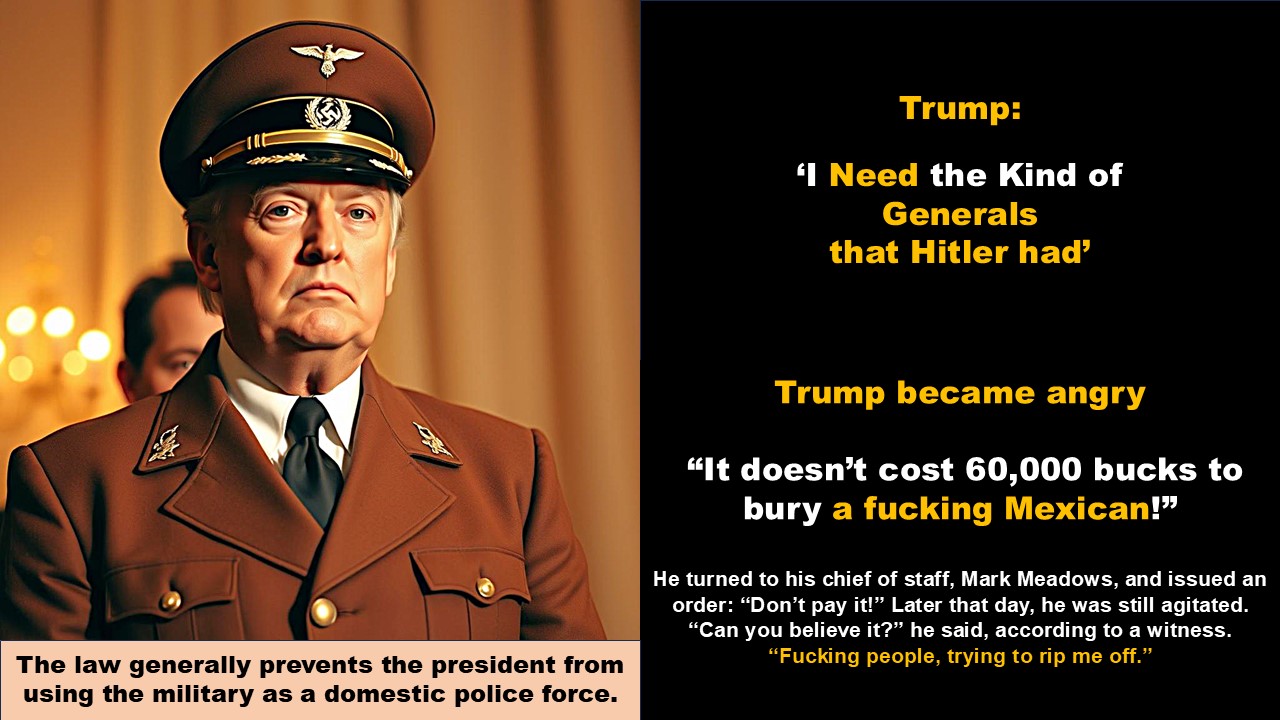
Trump became angry. “It doesn’t cost 60,000 bucks to bury a fucking Mexican!” He turned to his chief of staff, Mark Meadows, and issued an order: “Don’t pay it!” Later that day, he was still agitated. “Can you believe it?” he said, according to a witness. “Fucking people, trying to rip me off.”
As his presidency drew to a close, and in the years since, he has become more and more interested in the advantages of dictatorship, and the absolute control over the military that he believes it would deliver. “I need the kind of generals that Hitler had,” Trump said in a private conversation in the White House, according to two people who heard him say this.
A desire to force U.S. military leaders to be obedient to him and not the Constitution is one of the constant themes of Trump’s military-related discourse. Former officials have also cited other recurring themes: his denigration of military service, his ignorance of the provisions of the Uniform Code of Military Justice, his admiration for brutality and anti-democratic norms of behavior, and his contempt for wounded veterans and for soldiers who fell in battle.
In their book, The Divider: Trump in the White House, Peter Baker and Susan Glasser reported that Trump asked John Kelly, his chief of staff at the time, “Why can’t you be like the German generals?” Trump, at various points, had grown frustrated with military officials he deemed disloyal and disobedient.


